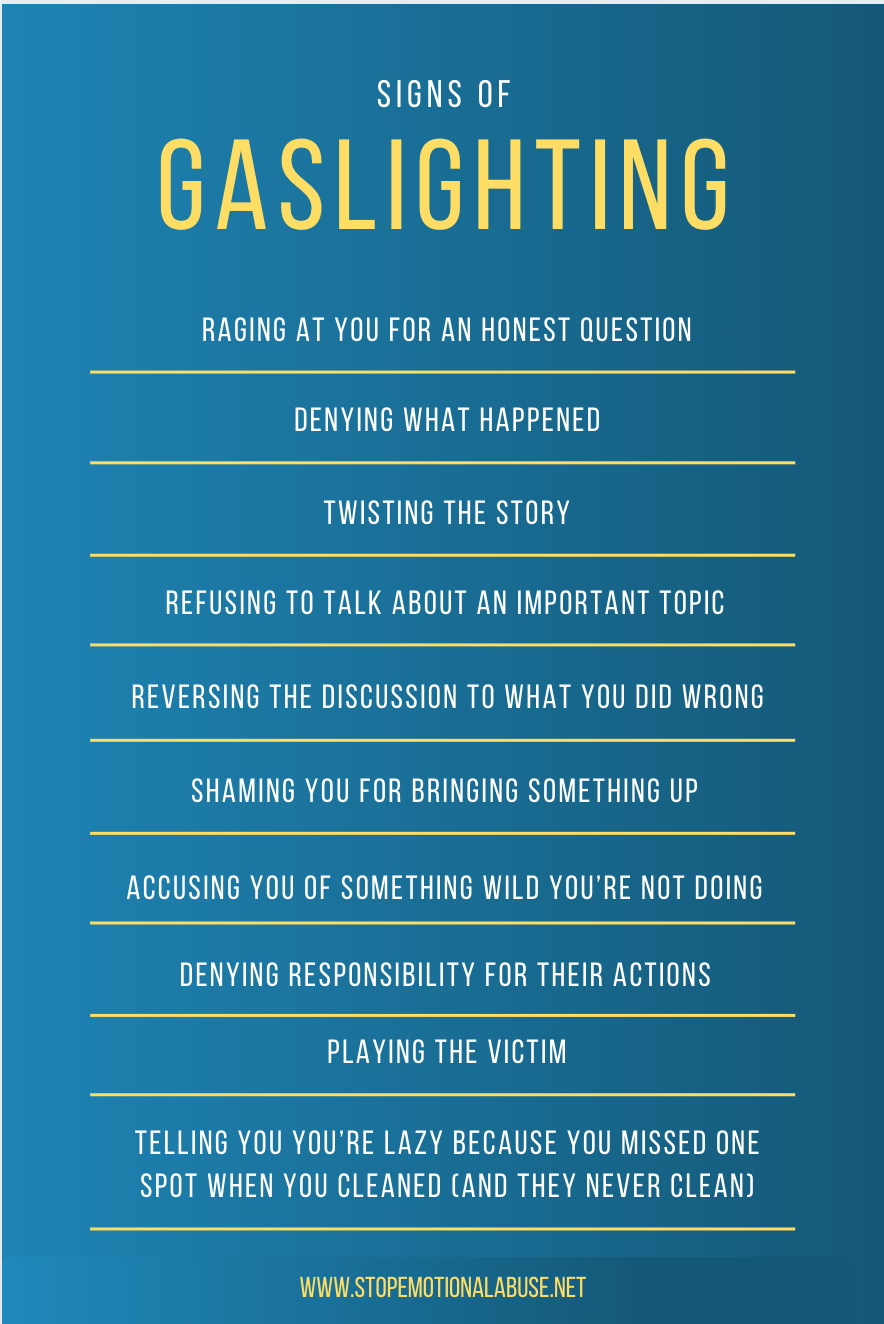
Chandra questioned her perception of reality, her memory and her ability to interpret events. These vulnerabilities made her less able to resist her husband’s manipulations, and she became psychologically exhausted and entrapped. She was experiencing financial stress as well as a lack of support around balancing child care with her jobs. Chandra was socially isolated from her friends and family.


Over time the way Chandra’s ex-husband called her “crazy” and accused her of “overreacting” made her doubt herself as a reliable witness to her own experiences.īut this effect was not produced in a vacuum. Her experiences are typical of the stories I’ve collected about gaslighting over the past few years. During an hour-long Zoom interview as part of my research, Chandra repeatedly described her ex-husband as a gaslighter.Īfter ending the call with Chandra (a pseudonym to protect her privacy and safety), I jotted down notes: confusion, unequal caregiving responsibilities, shame, credibility loss, gender-based insults, verbal abuse. He would, for instance, intentionally delay paying bills and then blame her when the lights were shut off-a strategy of financial control that made her feel dependent on him.

Chandra worked, went to school and provided all of the care for their children, yet her husband convinced her that she needed him. He often used the word “irrational,” historically a term used to demean women. During her 12-year marriage, “Chandra” says, her husband routinely cheated and then told her she was “crazy,” “jealous” and “paranoid” when she produced evidence of his affairs.


 0 kommentar(er)
0 kommentar(er)
